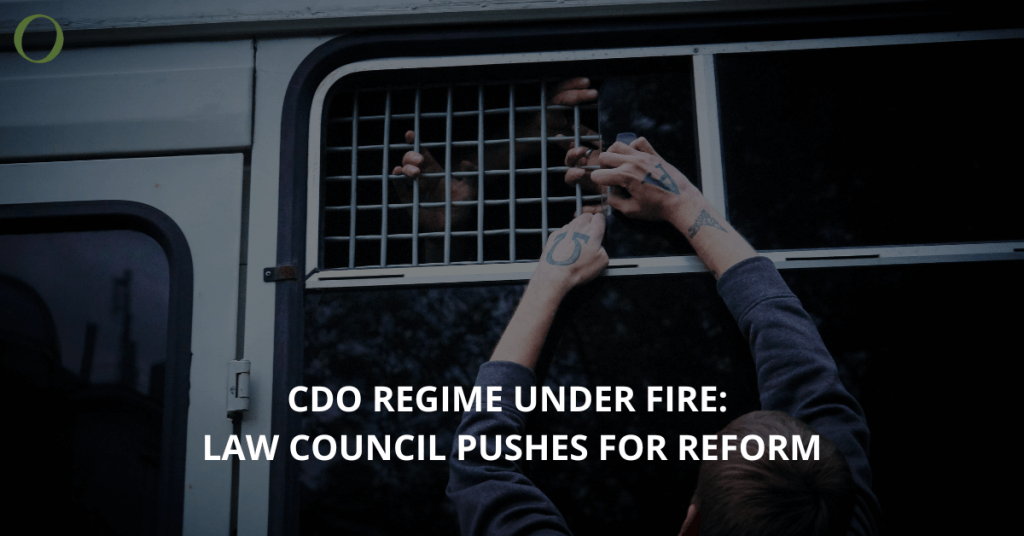The Law Council of Australia believes that detention should only occur following a person’s conviction for an offence. They support the Independent National Security Legislation Monitor’s (INSLM) recommendation to abolish the power to make Continuing Detention Orders (CDOs).

What are Continuing Detention Orders (CDOs)?
CDOs are a type of post-sentence order that a court can make under Division 105A of the Criminal Code Act 1995 (Cth). CDOs allow the detention of an individuals based on the prediction that they may commit a future terrorism offence.
Under the CDO regime, a person who serves a prison sentence for a terrorism offence can be subject to ongoing detention for a period of up to three years. This period can extend indefinitely, subject to periodic reviews. Individuals not convicted but who the Court deems to pose an unacceptable risk of committing a terrorism offence in the future may also find themselves with a CDO.
Summary of Independent National Security Legislation Monitor’s (INSLM) report

The report covered the operation and effectiveness of Division 105A of the Criminal Code Act 1995
The INSLM recommends the following:
- That the power to make CDOs be abolished – they are not a necessary or proportionate response to the threat of terrorism.
- Improvements to the procedural fairness governing the admission and use of expert evidence in determining the risk posed by an offender under the Extended Supervision Order (ESO) scheme.
- Defendants confronting CDO and ESO applications be provided with legal assistance and that the Commonwealth should fund these costs in a timely and adequate manner.
The report emphasises:
- The importance of balancing the need to protect the community from the threat of terrorism with the rights and freedoms of individuals.
- The need for a specialised body of knowledge to base predictions about a person’s future risk of committing a terrorism offence, which is currently lacking in Australia.
The INSLM notes that Australia remains an outlier among countries that share Australia’s values and traditions, such as the United Kingdom and New Zealand, in having a CDO mechanism as a response to the risk of terrorism.
Law Council Supports INSLM Recommendations:
The Law Council suggests that detention should only take place after a person has been found guilty of a crime, in line with INSLM’s recommendation to eliminate the authority to issue CDOs.
The Law Council of Australia is pleased and congratulates the INSLM for this report and looks forward to seeing these important recommendations implemented.
The Law council’s media release can be found here: https://www.lawcouncil.asn.au/media/media-releases/law-council-calls-for-reform-to-abolish-continuing-detention-order-regime
If you or you know someone that is facing a CDO or ESO, it is important to seek legal advice and support. For any inquiries or concerns, contact our lawyers today.

Nicole Byrne
Content Creator | Media Coordinator
O'Brien Criminal & Civil Solicitors
www.obriensolicitors.com.au






